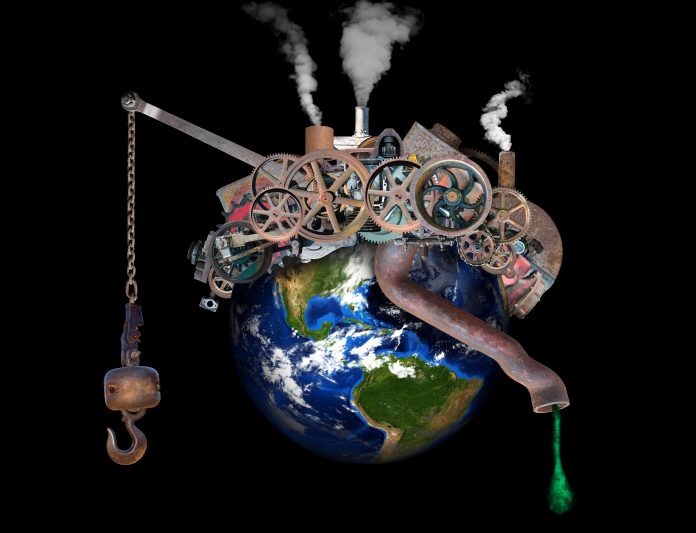Bio-D has listed some easy ways that you can help to reduce climate change and your individual impact on the planet
Launched in 190 countries across the globe, David Attenborough’s latest docu-series Our Planet is set to reach over one billion people around the world. Created by Netflix in collaboration with the WWF, the eight-part documentary hopes to educate its viewers about what action is required if we are to ensure a future where both humans and nature can thrive.
And the viewers are listening. People across the world are finally taking notice and realising that climate change is a real threat to the planet – and that we must take action in order to make a difference.
If every single one of those one billion viewers makes a change, it could have a big impact.
Make an effort to recycle
A simple way to get started with saving the planet is to recycle. Though the majority of us have a recycling bin, not many people actually know how recycling makes a positive effect on our environment.
Put simply, recycling and reusing materials mean that less waste ends up in a landfill. And landfill sites contribute to 25% of the global greenhouse gas emissions each year.
In order to recycle properly, make sure to first check the back of any packaging – as surprisingly not all plastics can actually be recycled. However, these materials can often be dropped at your local recycling facility, so check on your local council website for more details. This might seem like hard work, but how often to do pass your local tip each week? All it takes is a five-minute detour to make a difference!
Keep an eye on your diet
One way in which we can make a significant difference to our current climate change situation is to avoid eating meat and dairy. Believe it or not, the livestock sector – raising cows, pigs and chickens – generates the same greenhouse gas emissions as all cars, trucks and automobiles combined.**
You may choose to follow a fully meat-free, vegan diet, but if not, avoiding meat just a couple of days a week can still make a huge difference. As well as encouraging people to introduce more greens and healthier foods to their diet, it can simultaneously help combat climate change.
There are also other ways in which you can help when it comes to cooking. Something as simple as putting lids on your pans or opening your oven less whilst cooking can help heat food quicker, ultimately reducing the amount of energy used in the kitchen. Keeping a full freezer can even contribute!
Create an energy efficient haven at home
Another way to reduce emissions is to take a look at energy use in our homes. Quick and simple changes may have more of an effect than you realise.
For example, energy efficient lightbulbs can use less than a quarter of the electricity of a traditional lightbulb. This, in turn, decreases the amount of energy you use at home, which ultimately decreases power plant emissions. Which may not sound like much, but if the whole population made the change would result in a phenomenal decrease.
Other simple ways to make a difference in your home include buying thick curtains to trap heat, turning the lights off when out of the room and avoiding leaving appliances on standby to save energy. Even turning your heating down by just one degree helps – which can actually save you up to £30 a year on your heating bill! *
Longer term changes could also include investing in double glazing windows, insulating your loft space and under floorboards to keep heat in and reduce your use of central heating.
Think about your method of transport
According to Friend of the Earth, transport is responsible for around a quarter of the UK’s emissions of carbon dioxide. And with the majority of households owning more than one car, this is only set to increase.
Of course, walking or cycling to your destination is an easy solution when attempting to reduce your personal input. As well as using less fuel – which saves both money and energy, it’s a great way to incorporate exercise into your daily routine. Using public transport also helps when it comes to longer journeys.
However, if driving is your only option, you can optimise your vehicle to help reduce emissions as much as possible. Tips for doing this include keeping tyres properly inflated, driving with windows up to reduce drag and switching off the engine if you’re going to be stationary for longer than two minutes – all of which help reduce fuel consumption.
Spend responsibly
Products in all aspects of life have some sort of impact on the environment. Whether it’s buying organic, local food to avoid the emissions generated by transportation, or opting for buying clothing created from sustainable materials, it all makes a difference.
A great way to help reduce consumption further is to make the most of independent refill stores that are dotted in cities and towns across the country. These are full of products which customers can stock up on, using their own bags and containers – saving on new food and packaging waste. As well as being a great way to support your local independent stores, it means that customers can further reduce their use of plastic and food waste at the same time, only buying what they need rather than buying larger packs.
*Statistic from Friends of the Earth
**Statistic from Greenpeace.org











